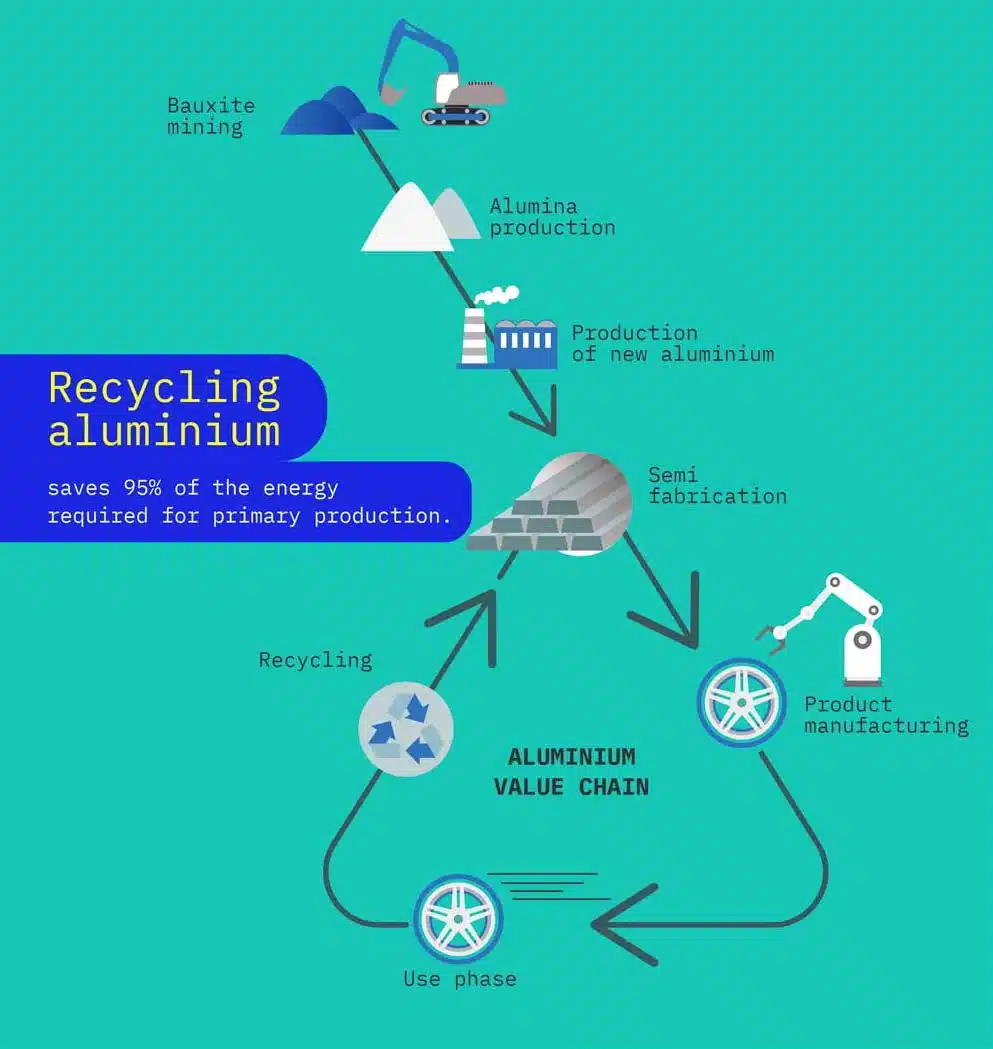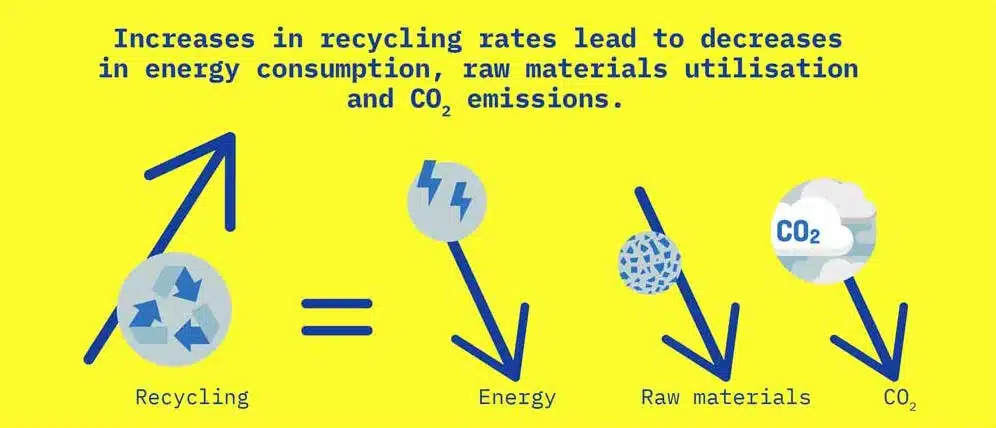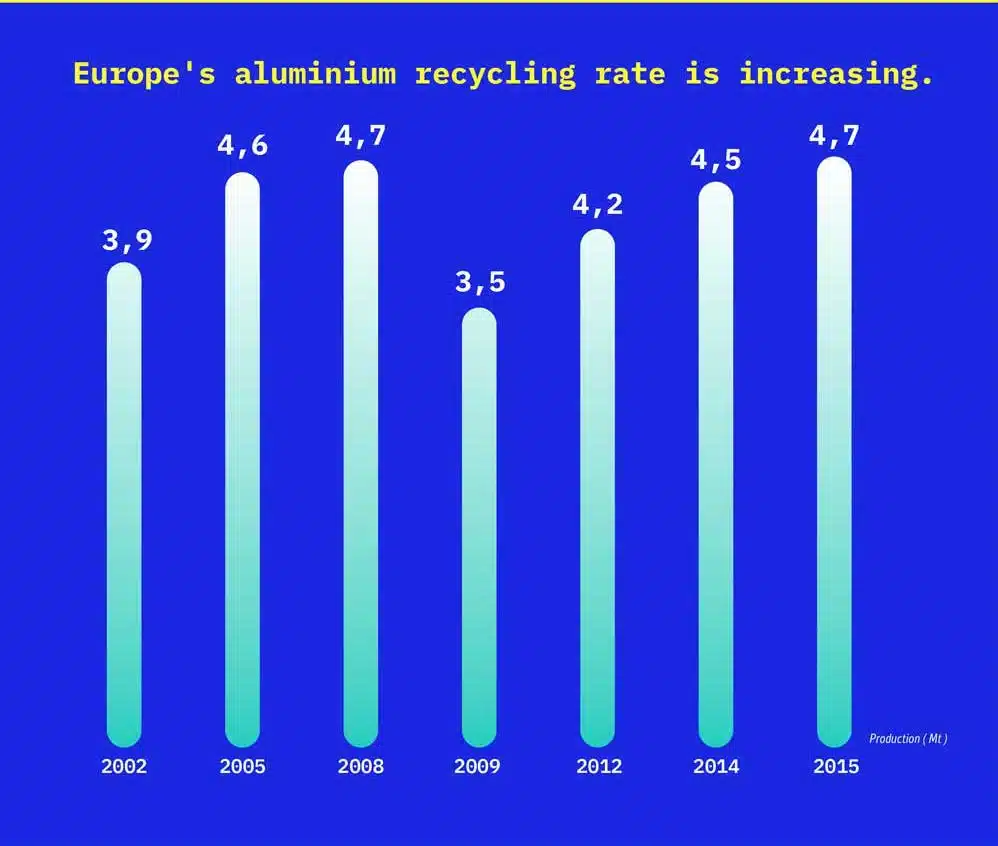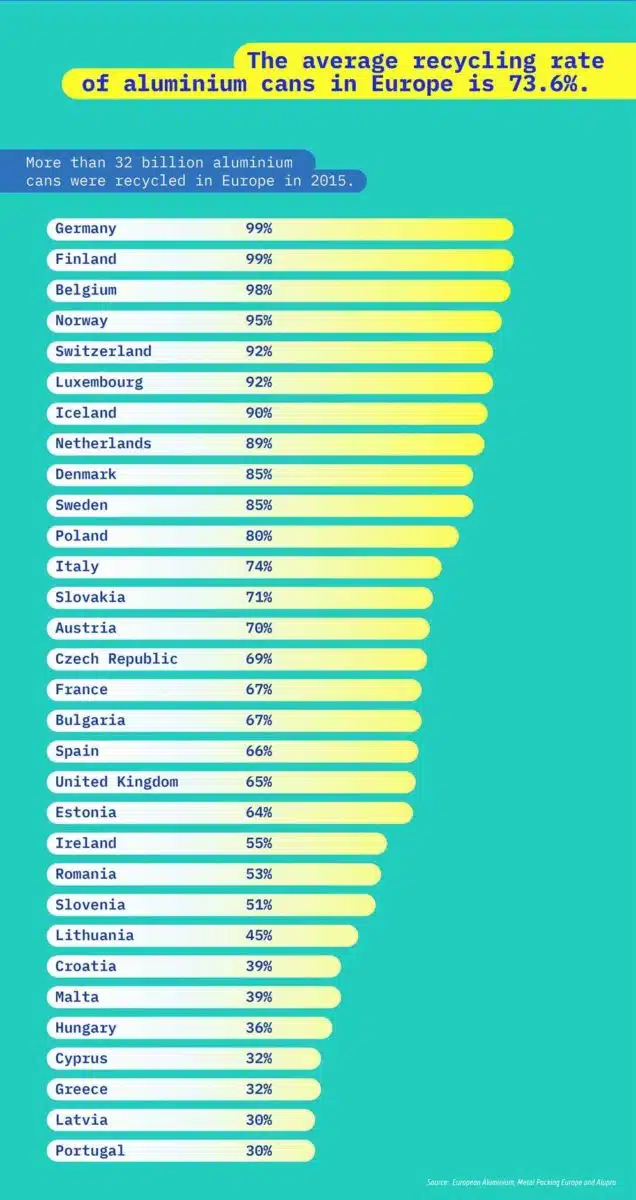Thanks to its durability and recycling properties, an incredible 75 per cent of aluminium ever produced is still in use today. It’s no wonder that aluminium recycling has a pivotal role in supporting Europe’s drive to sustainability as well as providing more than 10,000 direct and indirect jobs in small- and medium-sized enterprises over all Europe. Recycling aluminium is more environmentally friendly than producing the metal from scratch as it releases fewer greenhouse gasses.
Energy savings
Recycling aluminium saves 95% of the energy required for primary production. Getting reusable material from aluminium scraps requires less energy input compared to mining and melting process. This means that recycling aluminium uses only 5% of the energy required to create aluminium from bauxite.
Environmental savings
Increases in recycling rates lead to decreases in energy consumption, raw materials utilisation and greenhouse emissions. Aluminium recycling is more cost efficient than producing primary aluminium even when taking into account the cost of collection, separation and recycling. This means not only less polluted landfills, but also avoiding the environmental impact of mining and international shipping of raw aluminium.
Increasing recycling rate
Europe’s aluminium recycling rate has been recovering since the financial crisis of 2008. The metal can be recycled infinitely and it does not lose its initial properties, which means there is no difference in quality between products made with recycled metal and those using freshly smelted aluminium.
Aluminium cans
The average recycling rate of aluminium cans in Europe is almost 74%, and more than 32 billion aluminium cans were recycled in Europe in 2015. Aluminium cans and their growing popularity have put aluminium recycling into the public consciousness, but sources for scrap vary from cookware to wires, and from bicycles to aircraft.
Aluminium scrap
While Europe’s aluminium recycling rate has been increasing in the recent years, there are further opportunities for aluminium to become an essential component of Europe’s circular economy. This valuable resource can play a bigger role if aluminium scrap stays in Europe. Since 2002, aluminium scrap shipments from the EU member states to non-EU countries have been on the rise. Aluminium recyclers in Europe comply with high environmental, health and safety standards, and provide jobs close to home. More than 80% of scrap generated in the European Union heads to Asia, compromising sustainability and the development of a circular economy in Europe.



